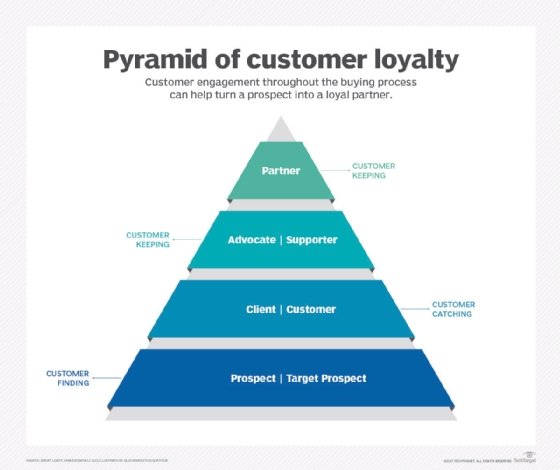
Rawpixel.com - Fotolia
Wield AI to personalize consumer products and aid logistics
Companies using AI to sell consumer products seek brand loyalty by using personalization, online sales capabilities and optimized inventory management
In the convenience-driven world of consumer packaged goods (CPG) -- comprised of personal care products, food and beverages, and various expendable sundries -- machine learning and AI drive innovations that further increase the value, margins, and brand loyalty of products. As consumers turn to online shopping for staple products, CPG brands are becoming more creative in the battle for market share. Using AI for consumer products is enabling companies to create hyperpersonalized offerings, optimize inventory and pricing, improve promotions and reach an extended swath of customers.
Personal engagement with customers
The CPG industry is dominated by the sale of staple goods on a repeated basis. From toothpaste to shampoo, customer profiles fluctuate between those shopping for the best deal and those staying loyal to a particular brand. To address this sometimes inconsistent audience, brands are prioritizing customer feedback and utilizing AI systems to constantly monitor reviews, survey responses, social media and direct conversations with customers to gauge customer satisfaction and address potential issues.
Using natural language processing and sentiment analysis, companies gain a complete picture of the customer to identify changes in perception of product and assess the impact of marketing and sales campaigns. AI-enabled NLP technology finds patterns in customer interactions and helps CPG businesses better support customers, improve marketing campaigns and inform business decisions.
CPG brands are also using AI to find more creative ways to increase consumer engagement. Using image recognition technologies, CPG brands are gaining mindshare and increasing their connection with customers through social media and photo contests. Brands such as Coke, PepsiCo and Frito-Lay are using machine learning-based image recognition technologies to enable social contests in which customers photograph their products and compete for prizes. These contests in turn drive in-store promotion, sales and repeat customer purchases.
CPG brands are making use of voice assistants -- such as Amazon Alexa, Google Home, Apple Siri, Microsoft Cortana, and Samsung Bixby -- to help increase their connection with customers. Laundry detergent brand Tide created a personalized skill for Alexa that answers questions such as how to get grease out of clothes or care for hard-to-wash fabrics such as silk or wool. Other voice apps provide games or contests linked to consumer goods.
Hyperpersonalization and online sales
Modern consumers shop online, and CPG companies are finding that their relationship to the customer, customer expectations, and shopping experiences are changing as a result. A new variety of consumer goods companies have emerged that are entirely e-commerce. Brands such as Dollar Shave Club have a primarily online presence with little to no store shelf presence. Traditional, box store CPG companies are looking to enter into this new wave of competition by using AI to personalize customer profiles and let online customers know that they can purchase products online and in-store.
Personalization is key to driving conversion. AI-powered hypersonalization for consumer products is allowing CPG companies to learn customers' specific brand preferences, shopping frequency, price point sensitivity and other aspects that affect buying behavior, to deliver a more detailed profile. Based on this personalized data, AI systems can predict future purchases based on an individual customer's previous behavior and proactively ship packages before the customer has even placed the order. Additionally, AI systems can also use real-time web design variations, targeted mobile and social ads, and other promotions to address the specific needs of their audience and improve marketing program effectiveness.

Optimizing inventory and logistics
CPG vendors must make sure they have the right amount of inventory going to the right places -- running out of stock is a recipe for losing customer loyalty and brand visibility. To solve this problem, CPG companies are investing in predictive analytics and inventory management strategies that ensure adequate supply for their demand. Machine learning algorithms can detect patterns and anomalies that are not visible to traditional forecasting or predictive analytics approaches. For example, through machine learning pattern analysis, Walmart discovered that consumers buy strawberry-flavored Pop-Tarts before hurricanes -- an unusual correlation that has resulted in increased sales through the observation of human patterns.
AI consumer product systems can also respond more quickly to changes in buying behavior by understanding what's on the shelf and what's running out, so that large-scale retailers can optimize inventory. Beyond simple predictive analysis, retailers are using automated bots to assist with the process and connect back to CPG brands. Self-scanning bots are being deployed in select stores around the US -- checking things like inventory, prices or misplaced items. These bots roam the floors collecting data to improve overall efficiency both within that store and at similar stores. CPG vendors are gaining access to the data to further assist with their inventory management, ROI potential and prediction process.
In the war for optimal shelf space, bots use embedded image recognition technology to determine what percentage of a store's shelf is occupied by certain products.
In addition to the use of predictive analytics for inventory, CPG companies are using AI to optimize logistics and supply chain considerations. The use of automated warehouse operations bots and machine learning-optimized deliveries are further streamlining operations -- resulting in increased margins that CPG companies depend on.
For CPG companies, gaining market share and having their brand outperform competition secures business productivity. By using various AI technologies, consumer products companies are collecting and analyzing real data, engaging and understanding their customers through sentiment analysis, and creating more personalized experiences.








